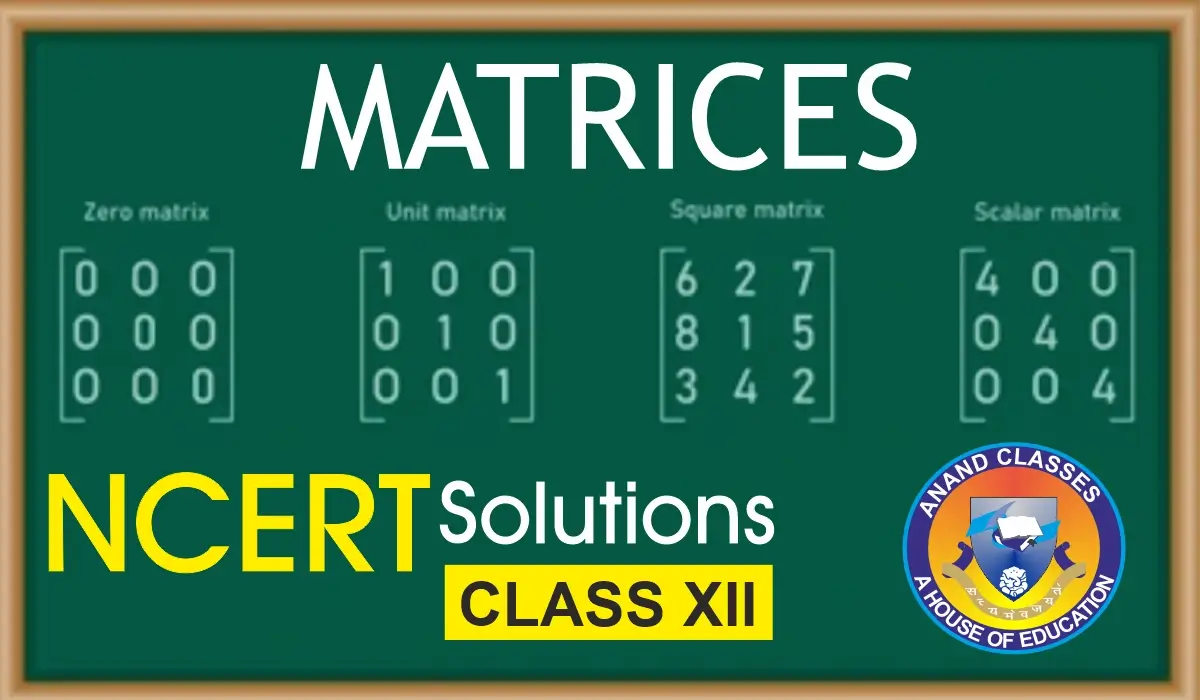Complex numbers can be expressed as a combination of real and imaginary numbers. The standard notation of a complex number is given by z = x + iy, where x is the real part of z and iy is the imaginary part of the complex number z. Also, “i” is called the “iota” and i2 = -1.
If z1 = a + ib and z2 = c + id are two complex numbers such that;
- (a + ib) + (c + id) = (a + c) + i(b + d)
- (a + ib) – (c + id) = (a – c) + i(b – d)
- (a + ib). (c + id) = (ac – bd) + i(ad + bc)
- (a + ib) / (c + id) = [(ac + bd)/ (c2 + d2)] + i[(bc – ad) / (c2 + d2)]
Complex Numbers Questions and Answers
1. If z = 2 – 3i, then find z2.
Solution:
Given,
z = 2 – 3i
z2 = z.z
= (2 – 3i)(2 – 3i)
= 2(2) – 2(3i) – (3i)(2) + (3i)(3i)
= 4 – 6i – 6i + 9i2 {since i2 = -1}
= 4 – 12i + 9(-1)
= 4 – 12i – 9
= -5 – 12i
Therefore, z2 = -5 – 12i.
2. Suppose z = (2 – i)2 + [(7 – 4i)/(2 + i)] – 8, express z in the form of x + iy such that x and y are real numbers.
Solution:
Given,
z = (2 – i)2 + [(7 – 4i)/(2 + i)] – 8
= (2)2 – 2(2)(i) + (i2) + [(7 – 4i)(2 – i)/ (2 + i)(2 – i)] – 8
= (4 – 4i – 1) + [(14 – 7i – 8i + 4i2)/ (4 – i2)] – 8
= (3 – 4i) + [(14 – 15i – 4)/(4 + 1)] – 8 {since i2 = -1}
= (3 – 4i) + [(10 – 15i)/5] – 8
= (3 – 4i) + (2 – 3i) – 8
= -3 – 7i
This is of the form x + iy such that x = -3 and y = -7.
3. Simplify:
\(\begin{array}{l}\frac{1-2i}{3+4i}-\frac{2+i}{5i}\end{array} \)
Solution:
\(\begin{array}{l}\frac{1-2i}{3+4i}-\frac{2+i}{5i}\end{array} \)
This can be written as:
\(\begin{array}{l}=\frac{1-2i}{3+4i}.\frac{3-4i}{3-4i}-\frac{2+i}{5i}.\frac{-i}{-i}\\=\frac{(3-4i-6i+8i^2)}{9-16i^2} -\frac{(-2i-i^2)}{-5i^2}\\=\frac{(3 – 10i – 8)}{(9+16)}-\frac{(-2i+1)}{5}\\=\frac{(-5-10i)}{25}+\frac{2}{5}i – \frac{1}{5}\\=-\frac{1}{5}-\frac{2}{5}i+\frac{2}{5}i – \frac{1}{5}\\=-\frac{2}{5}\end{array} \)
Therefore,
\(\begin{array}{l}\frac{1-2i}{3+4i}-\frac{2+i}{5i}=-\frac{2}{5}\end{array} \)
| Modulus and Conjugate of a Complex number If z = x + iy is a complex number then, mod of z is given by |z| = √(x2 + y2). If z = x + iy then the conjugate of z is z̄ = a – ib. |
4. If z1 = 2 + 8i and z2 = 1 – i, then find |z1/z2|.
Solution:
Given,
z1= 2 + 8i and z2 = 1 – i
z1/z2 = (2 + 8i)/(1 – i)
= (2 + 8i)(1 + i)/ (1 – i)(1 + i)
= [2 + 2i + 8i + 8i2]/ [1 – i2]
= (2 + 10i – 8)/ (1 + 1) {since i2 = -1}
= (-6 + 10i)/2
= -3 + 5i
Now, |z1/z2| = √[(-3)2 + (5)2]
= √(9 + 25)
= √34
5. If |z2 – 1| = |z2| + 1, then show that z lies on an imaginary axis.
Solution:
Let z = x + iy be the complex number.
Now, z2 = z.z = (x + iy)(x + iy)
= x2 + ixy + ixy + (iy)2
= x2 + 2ixy – y2 {since i2 = -1}
z2 – 1 = x2 + 2ixy – y2 – 1
= (x2 – y2 – 1) + i(2xy)
Thus, |z2 – 1| = √[(x2 – y2 – 1)2 + (2xy)2]
= √[(x2 – y2 – 1)2 + 4x2y2]
|z|2 + 1 = [√(x2 + y2)]2 + 1
= x2 + y2 + 1
Given that,
|z2 – 1| = |z2| + 1
So, √[(x2 – y2 – 1)2 + 4x2y2] = x2 + y2 + 1
Squaring on both sides, we get;
(x2 – y2 – 1)2 + 4x2y2 = (x2 + y2 + 1)2
[x2 – (y2 + 1)]2 + 4x2y2 = [x2 + (y2 + 1)]2
[x2 – (y2 + 1)]2 – [x2 + (y2 + 1)]2 + 4x2y2 = 0
As we know, (a – b)2 – (a + b)2 = -4ab,
-4x2(y2 + 1) + 4x2y2 = 0
-4x2y2 – 4x2 + 4x2y2 = 0
4x2 = 0
x = 0
Therefore, z lies on the y-axis.
6. Find the conjugate of z1 – z2 if z1 = 2 + 3i and z2 = 5 + 2i.
Solution:
Given,
z1 = 2 + 3i
z2 = 5 + 2i
z1 – z2 = (2 + 3i) – (5 + 2i)
= (2 – 5) + i(3 – 2)
= -3 + i
As we know the conjugate of z = x + iy = x – iy.
Conjugate of z1 – z2 = -3 – i
7. Simplify: i59
Solution:
We know that,
i2 = -1, i3 = -i, i4 = 1
We can write 59 as: 59 = 4 × 14 + 3
So, i59 = i(4 × 14) + 3
= i(4 × 14) . i3
= 1.i3
= -i
Therefore, i59 = -i.
8. Find real x and y if (x – iy) (3 + 5i) is the conjugate of – 6 – 24i.
Solution:
(x – iy)(3 + 5i) = 3x + 5ix – 3iy – 5yi2
= 3x + i(5x – 3y) + 5y {since i2 = -1}
= (3x + 5y) + i(5x – 3y)
Given that (x – iy)(3 + 5i) is the conjugate of -6 – 24i.
Here, the conjugate of -6 – 24i = -6 + 24i.
So, 3x + 5y = -6
5x – 3y = 24
Solving these two equations, we get; x = 3 and y = -3.
9. Find the relation between a and b if z = a + ib if |(z – 3)/(z + 3)| = 2.
Solution:
Given,
z = a + ib
|(z – 3)/(z + 3)| = 2
|(a + ib – 3)/(a + ib + 3)| = 2
|(a – 3) + ib|= 2|(a + 3) + ib|
√[(a – 3)2 + b2] = 2√[(a + 3)2 + b2]
Squaring on both sides, we get;
(a – 3)2 + b2 = 4[(a + 3)2 + b2]
a2 – 6a + 9 + b2 = 4(a2 + 6a + 9 + b2)
4a2 + 24a + 36 + 4b2 – a2 + 6a – 9 – b2 = 0
3a2 + 30a + 27 + 3b2 = 0
a2 + 10a + 9 + b2 = 0
(a2 + 10a + 25) + (b2 + 9 – 25) = 0
(a + 5)2 + b2 = 16
(a + 5)2 + b2 = 42
10. If |z + 1| = z + 2 (1 + i), then find z.
Solution:
Let z = x + iy be the complex number.
Given,
|z + 1| = z + 2 (1 + i)
⇒ |x + iy + 1| = x + iy + 2 (1 + i)
We know,
|z| = √(x2 + y2)
√[(x + 1)2 + y2] = (x + 2) + i(y + 1)
Comparing real and imaginary parts,
⇒ √((x + 1)2 + y2) = x + 2
And 0 = y + 2
⇒ y = -2
Substituting the value of y in √((x + 1)2 + y2) = x + 2, we get;
(x + 1)2 + (-2)2 = (x + 2)2
x2 + 2x + 1 + 4 = x2 + 4x + 4
⇒ 2x = 1
⇒ x = ½
Therefore, z = x + iy = ½ – 2i.
Practice Questions on Complex Numbers
- Find the conjugate of complex number (1 – i)/(1 + i).
- The complex number z = a + ib, where a and b are real numbers, satisfies the equation z2 + 16 – 30i = 0.
- Calculate the modulus value of the complex number −2√3 – 2i.
- Simplify: (1 + 6i) + (6 − 2i) − (−7 + 5i)
- If [(1 – i)/(1 + i)]100 = a + ib, then find the values of a and b.
- Complex Numbers problems with solutions PDF
- Important Complex Numbers questions for JEE
- Complex Numbers practice questions with answers
- JEE Complex Numbers problems and solutions
- Complex Numbers important formulas and questions
- Complex Numbers solved examples PDF download
- Complex Numbers JEE previous year questions with solutions
- Free PDF download Complex Numbers questions and answers
- Algebra of Complex Numbers practice problems
- Complex Numbers MCQs with solutions PDF
- Complex Numbers worksheet with answers PDF
- Complex Numbers PYQs for JEE mains and advanced
- Complex Numbers short tricks for JEE
- JEE mains Complex Numbers topic-wise questions
- Free PDF Complex Numbers study material


